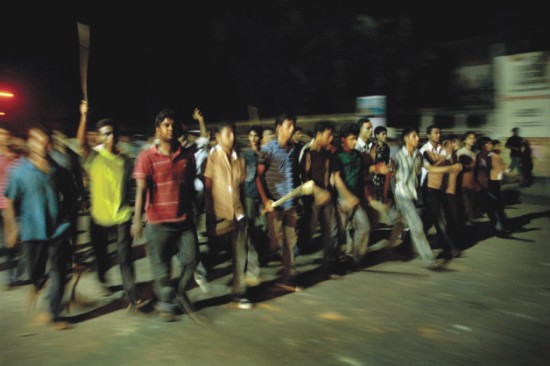
Inside
|
The Problem with Politics Muslehuddin Ahmad discusses the need to end party politics on campus What we, the sponsors of private universities, see in the campuses today is exactly the situation that prevailed in the 1980s that ultimately paved the way to the creation of private universities in the first place. During the 1980s, campus violence and session jams meant that both students and teachers were ready for a change, and private universities offered a different path. We formally started working on a private university in late 1989 and we got final approval for the first private university from the government in 1992. Today we have about 56 private universities that have been officially approved.
No Politics It is necessary to state here that we have already set up a private Educational Quality Assurance Foundation (EQAF) to evaluate the educational standard of mostly private universities. Revolutionary Change The contributions of the private university system are enormous, and several researchers including some in foreign universities have already started assessing the impact of the private university system on the education, employment, human resource development, etc of Bangladesh. Learning Politics Should Student Politics be Banned? But this seems to have garnered a negative reaction as many feel that university students have the right to do politics for the purpose of preparing themselves for the future. It is also a fact that only a small number of the students ultimately join politics on completion of studies. However, knowledge of politics is important even for those who do not join politics. Thus we must find the way to meet all these conditions, as well as allow the students to continue studies without interruptions. No Political Parties It has been proved beyond doubt that these student bodies on campus become the extensions of some of the major political parties of the country, leading to students doing party politics and becoming tools in the hands of the self-interested politicians. Such student politics have been creating murderous situations on campus. This is why there should be no direct or associated student political bodies on campus. However, those who are interested to do politics during their student life can do so as suggested above. It is imperative that the political leadership of the country take a firm decision in the matter, keeping in view the interest of the students and also the future of the country. Otherwise, people will make the political parties and their leadership fully responsible for their wrong policies on the future of the students. The students must not be used for the purposes of political gains and be fodder for the party-based political agitations. If a law is enacted allowing students to directly join a political party of their choice but prohibiting student political bodies on campus, calm will return to the campuses in no time. The example of private universities serves to prove that the students are really not interested to do politics directly while studying in college and university. In most national universities, political parties wilfully mix up student life with politics for their own political gain, something that ultimately hurts the students who are the future leaders of our country. The present government may recall that the student bodies have hardly played any role in bringing them their huge election victory. So why involve the helpless students in disastrous party politics and make them extortionists, rent seekers, forced occupiers of halls and hostels, etc and thus ruin their careers? Leave them alone! Non-Political Union Glorious History One feels that the student community as a whole can always rise up in the unlikely event of any form of attack on the country's sovereignty and other common issues of interest of the country which generally erases the party political borders. In other words, regardless of political affiliations, all would then work together to protect the interest of the country. Teachers' Politics The bottom line is there should be no party politics making the campus life miserable and dangerous. Teachers can have their own associations without any political party line. They should also speak on common problems that the country faces and offer their perspectives without bringing party politics or any kind of bias into their discussions. What is important is that they should not do party politics for uplifting their positions in the universities. Their rise through the academic echelons of power should be based strictly on merit and research work and certainly not on political affiliations. Appointments of Deans If the deans are appointed on the basis of elections, then the teachers remain engaged in politics and do not concentrate on teaching. This leads to alignment of teachers with student politics on party lines, leading to the politicisation of the campus administration. Appointments of Vice-Chancellors He has to show partisanship in his administration and also in academic affairs, i.e. appointing teachers on party lines regardless of their academic qualifications. Even the academic results are often manipulated to the advantages of the political party/coalition in power. Independent and fully neutral search committees without government interventions should be introduced for the purpose of appointments of VCs in the universities. It is absolutely necessary to free the campuses of party politics in the best interests of the students and the teachers. The students, teachers, and other academics must be allowed to pursue their academic life independent of party politics. Muslehuddin Ahmad was the principal sponsor and founder Vice-Chancellor of North South University.
|
